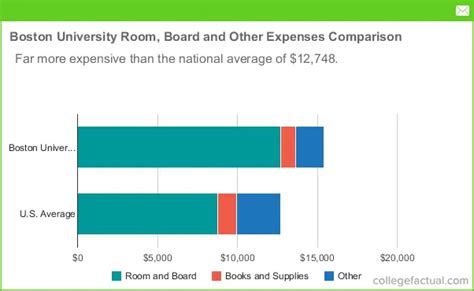As a prospective student or parent, understanding the housing costs associated with attending Boston University is crucial for financial planning. This comprehensive guide will provide detailed insights into various housing options, including on-campus dorms, off-campus apartments, and living expenses.

On-Campus Housing Costs
Boston University offers a range of on-campus housing options, catering to diverse student needs and preferences. For the 2023-2024 academic year, the estimated costs are as follows:
| Room Type | Annual Cost (including meal plan) |
|---|---|
| Standard Single | $15,702 |
| Standard Double | $14,282 |
| Standard Triple | $13,222 |
| Premium Single | $18,602 |
| Premium Double | $16,182 |
| Premium Triple | $15,122 |
Meal plans are mandatory for on-campus residents and range from $2,695 to $4,595 annually. Students also have the option of selecting an “All Access” dining plan for an additional charge.
Off-Campus Housing Costs
Off-campus housing provides students with greater flexibility and independence. The costs can vary significantly depending on the location, size, and amenities of the apartment or house.
According to Zillow, the median rent for a one-bedroom apartment in the Boston University area is around $2,500 per month. This translates to an annual cost of $30,000. The cost can increase for larger apartments or those located closer to campus.
Living Expenses
In addition to housing costs, students should factor in living expenses such as food, transportation, utilities, and personal expenses.
| Category | Estimated Monthly Cost |
|---|---|
| Groceries | $400 |
| Transportation | $200 |
| Utilities | $150 |
| Personal expenses | $200 |
Total Estimated Monthly Living Expenses: $950
Total Estimated Annual Living Expenses: $11,400
Financial Aid and Support
Boston University offers various forms of financial aid, including grants, scholarships, and loans, to assist students with housing costs. The university also has a dedicated Financial Aid Office that provides personalized guidance and support.
Strategies for Saving Money on Housing
To minimize housing costs, students can consider the following strategies:
1. Explore all on-campus housing options: On-campus dorms offer lower monthly costs compared to off-campus apartments.
2. Share housing with roommates: Splitting rent and utilities with roommates can significantly reduce individual expenses.
3. Negotiate rent with landlords: Landlords may be willing to lower rent for longer-term leases or subletting options.
4. Cook meals at home: Eating out can be expensive. Preparing meals at home can save substantial amounts of money.
5. Utilize public transportation: Using public transportation or carpooling instead of owning a vehicle can reduce transportation expenses.
Conclusion
Understanding the housing costs associated with attending Boston University is essential for making informed financial decisions. By carefully considering the various housing options and implementing cost-saving strategies, students can manage their housing expenses effectively and make the most of their academic experience.
